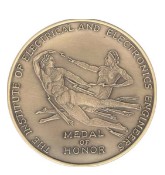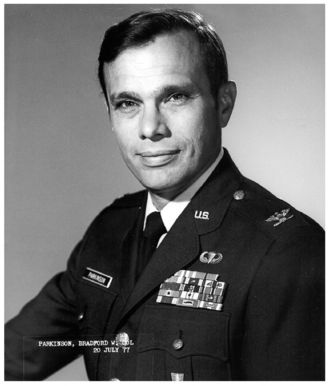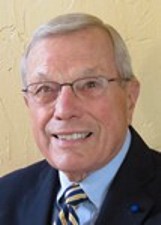| GPS Chief Architect Brad Parkinson Awarded IEEE Medal |
| Written by Sue Gee | |||
| Saturday, 19 May 2018 | |||
|
We take GPS for granted - we'd be lost without it. But have you ever wondered about who, when and how it was conceived? Brad Parkinson, who has received the 2018 IEEE Medal of Honor for his major role in its invention, is the best person to explain its origins.
The IEEE Medal of Honor, established in 1917, is the highest IEEE award. The award consists of a gold medal, a bronze replica, a certificate, and honorarium and goes to an individual identified as: having made a particular contribution that forms a clearly exceptional addition to the science and technology of concern to IEEE. The citation for Bradford W. Parkinson, Professor Emeritus, Stanford University and Life Fellow of the IEEE, reads: “For fundamental contributions to and leadership in developing the design and driving the early applications of the Global Positioning System.” According to his IEEE biography: Parkinson's technical, program management, and political expertise made the initial configuration of GPS a reality. Today’s mobile Long-Term Evolution (LTE) communications technology is essentially dependent on high-precision GPS timing for its operation. GPS is also integral to providing emergency services; marine, air, and automotive navigation; weather forecasting and tracking; and surveying and mapping applications.
It was as a Colonel in the U.S. Air Force in 1973 that Parkinson led the efforts to gain government approval of GPS and served as the first director of the GPS Joint Program Office. While GPS was originally funded solely by the military. Parkinson insured that certain GPS signals would be freely available for civil applications. Under his leadership, the GPS satellites were produced and launched in 44 months. Simultaneously, a ground control system was developed and deployed to upload the satellites. Also developed were eight different kinds of user equipment to demonstrate the capabilities of the new system, and Parkinson led extensive tests to confirm that GPS could meet its goals. If you want to know more about the background to GPS, watch this hour-long video of a lecture from the 61st International Astronautical Congress (IAC 2010) with the title with the title "Origins, Surprises and Future of GPS", delivered by Brad Parkinson, then Edward C. Wells Professor of Aeronautics, Astronautics Emeritus at Stanford University,
Parkinson has had an enduring relationship with Stanford. He received his PhD from Stanford in 1966 and became a research professor there in 1984 participating in the development of many innovative applications for GPS while leading a research group within the Center for Positioning, Navigation, and Time. His group successfully modified a commercial Boeing 737 for robotic aircraft landings. In 1992, this plane made 110 fully “blind” landings using GPS alone. They also developed the first precision robotic farm tractor controlled to an accuracy of approximately 2 inches on a rough field. This initiated the era of “autofarming” that is now a US$900 million-a-year worldwide market. The group also created the Wide Area Augmentation System (WASS) intended to enable aircraft to rely on GPS for all phases of flight, including precision approaches to any airport within its coverage area. In 1996 the American Institute of Aeronautics published a two-volume set of books Parkinson co-edited which are still available over 20 years later, see side panel. Parkinson also served as co-principal investigator and program manager of the NASA/Stanford Relativity Gyroscope Experiment, aka Gravity Probe B program, which validated Einstein’s general theory of relativity using orbiting gyroscopes. With GPS providing precision orbit control and measurement, the experiment verified two effects of general relativity never before tested with a mechanical apparatus. He was inducted as a Stanford Engineering Hero in 2014 by which time he was already in the National Inventors Hall of Fame (2004) and the co-recipient, with Ivan A Getting, of the 2003 Charles Stark Draper Prize in Engineering.
Parkinson explains more of his own lifelong interest in engineering in this short video made by IEEE which also lists past recipients of the IEEE Medal of Honor.
More InformationIEEE Bio of Bradford W Parkinson Related ArticlesRISC Pioneers Gain Turing Award Tim Berners-Lee Awarded Turing Prize Viterbi Receives 2016 Draper Prize Linus Torvalds Receives IEEE Computer Pioneer Award To be informed about new articles on I Programmer, sign up for our weekly newsletter, subscribe to the RSS feed and follow us on Twitter, Facebook or Linkedin.
Comments
or email your comment to: comments@i-programmer.info <ASIN:156347106X> <ASIN:1563471078>
|
|||
| Last Updated ( Saturday, 19 May 2018 ) |




